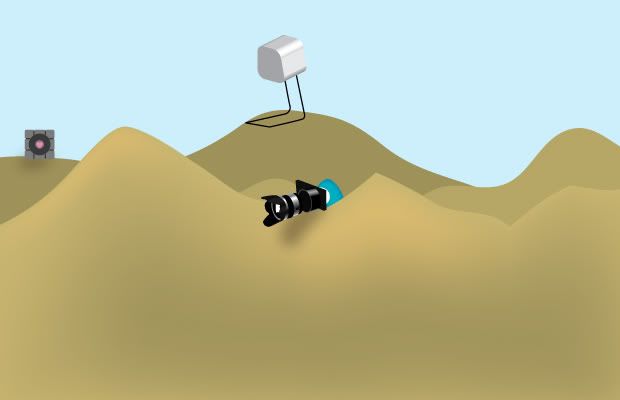- As Irene approached, 6 patients were too sick to evacuate from NYU-Langone Medical Center
- The hospital is just 100 yards from the East River
- Nurses kept flashlights by each bedside, and a 3-day medicine supply for each patient
- "We train for these disasters," says nurse manager Elaine Rowinski
(CNN) -- When New York City Mayor Michael Bloomberg instructed five hospitals to evacuate their patients from Hurricane Irene's path, one replied it couldn't follow his order.
Administrators from New York University-Langone Medical Center explained that six patients in the intensive care unit were so sick that moving them might kill them, and so the mayor's office gave permission to keep them in the hospital throughout the storm.
It then fell to Elaine Rowinski, nurse manager of the intensive care unit, to find seven nurses willing to stay at the hospital, right in the hurricane's predicted path and just 100 yards from the East River, which many feared would overflow. It turned out she had nothing to worry about.
"I could have had 20 nurses if I'd needed them," she said. "That's how many called me up to volunteer."
Rowinski stayed at the hospital all weekend as the doctors and nurses who also stayed listened to the wind and the rain through the boarded-up windows.
"I had no qualms about staying, no fears at all," she said. "We train for these disasters."
Brainstorming with her staff, Rowinski came up with a list of what they might need during the storm. The nurses kept flashlights by each bedside and plugged machines into the red outlets on the wall, which connect to the generators on top of the building, in case they lost power from Con Edison. They also kept a three-day supply of medicine next to each patient's bed in the event they needed to evacuate quickly.
About 200 staff members stayed at NYU, including engineers, security guards, housekeepers, blood bank staff, and two doctors.
Four family members stayed all weekend with the patients. Some of the patients had neurological diseases, while others had respiratory problems or infectious diseases. Many were on life support, but those that were conscious were told Friday they might have to be evacuated.
"They were so relieved when they found out they could stay," Rowinski said.
As for Rowinski, she finally went home Monday afternoon after nearly three days straight at the hospital. While she was working, her husband had to evacuate their house in Oceanside, on Long Island.
"He told me he kept a picture of me by the dog so he'd remember me," she said with a laugh.
CNN's John Bonifield contributed to this report.
 A new daily deals site catering to the lesbian, gay, bisexual, transgender (LBGT) and allied communities has just launched, and it's called
A new daily deals site catering to the lesbian, gay, bisexual, transgender (LBGT) and allied communities has just launched, and it's called  It's not easy being green -- or an entrepreneur. The inherent risk in becoming an entrepreneur or founding a startup is high. Sleepless nights, sweat equity, bribing new users to come to your product -- it's all part of the nerve-racking, code-spinning, and teeth grinding process.
It's not easy being green -- or an entrepreneur. The inherent risk in becoming an entrepreneur or founding a startup is high. Sleepless nights, sweat equity, bribing new users to come to your product -- it's all part of the nerve-racking, code-spinning, and teeth grinding process.  The Gillmor Gang ? Doc Searls, Robert Scoble, John Taschek, Kevin Marks, and Steve Gillmor ? explored the legacy and impact of Apple co-founder Steve Jobs. @dsearls called him the Beethoven of Business, and we spent the hour and 15 minutes matching that to what I called Jobs' ability to listen to the future. In recent years, Jobs has turned his focus on perfecting the microcomputing experience toward inventing a mobile platform that will last for decades to come. For those of us who saw the tech revolution as a child of the space program and the music of the '60s, living in the time of Steve Jobs has been the same kind of rare gift, swimming in real time with the giants of our history books. It's hard to predict what will come next, for Apple or any of us, but something tells us Jobs will be there in spirit as we build on his vision.
The Gillmor Gang ? Doc Searls, Robert Scoble, John Taschek, Kevin Marks, and Steve Gillmor ? explored the legacy and impact of Apple co-founder Steve Jobs. @dsearls called him the Beethoven of Business, and we spent the hour and 15 minutes matching that to what I called Jobs' ability to listen to the future. In recent years, Jobs has turned his focus on perfecting the microcomputing experience toward inventing a mobile platform that will last for decades to come. For those of us who saw the tech revolution as a child of the space program and the music of the '60s, living in the time of Steve Jobs has been the same kind of rare gift, swimming in real time with the giants of our history books. It's hard to predict what will come next, for Apple or any of us, but something tells us Jobs will be there in spirit as we build on his vision. 



 Because we needed more big tech news this week. Yes, it's true that Google has just brought the hammer down on Slide,
Because we needed more big tech news this week. Yes, it's true that Google has just brought the hammer down on Slide, 
 Every once in a while you see an invention that seems a long time coming. The
Every once in a while you see an invention that seems a long time coming. The